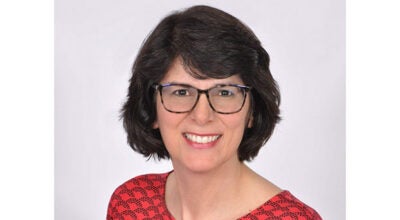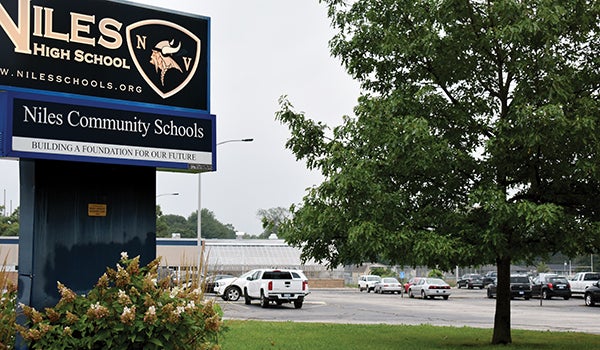Drug prevention program aims for a younger audience
Published 6:19 pm Sunday, February 24, 2013
By WILLIAM CRANDELL
Special to Leader Publications
According to the website TalkSooner.org, many children are now experimenting with drugs and alcohol as early as the age of 12. As a result, county drug education programs are taking their message to younger kids in the fourth, fifth and sixth grades, according to Kerri Teachout, the substance abuse prevention director at the Berrien County Health Department.
Forty-five percent of teens in Michigan reported that it would be very easy to get their hands on a prescription drug and, with the passage of the Medical Marijuana Act in 2008, marijuana is becoming normalized in society, and more and more children are being exposed to it. Teachout says her goal is to reach kids before they start experimenting with illegal substances and before they begin to make bad choices that can affect the rest of their lives. In her opinion, the best way to do that is by communicating with children early and often. This includes going into schools and keeping students and the adults in their lives informed of the dangers of substance abuse and arming children with the tools to say no.
The prevention specialists of the Berrien County Health Department Substance Abuse Prevention Services offer training and information to school districts and youth organizations throughout the county. They do so by familiarizing the staff of these organizations with the Michigan Model for Health Curriculum most notably the Alcohol, Tobacco and other Drug module.
“We try to stay up to date on current issues and work with their staff to train them on how to access the module. We want teachers to be able to deliver the content and be well informed about substance abuse and know what to look for,” Teachout said.
The Michigan Model for Health Curriculum is a nationally recognized evidence-based program that has proven to be effective in educating students in grades K-12 about a variety of health issues, including proper nutrition, maintaining a healthy lifestyle, HIV/AIDS prevention, how to deal with bullying and alcohol, tobacco and other drugs. The prevention specialists of the health department spend most of their time utilizing the alcohol, marijuana and tobacco and inhalants portion of the curriculum, which also expresses the influence of family and friends and the effects that advertising and the media have upon youth. But one of the most important aspects is that it also teaches refusal skills to aid children in peer pressure situations. The prevention specialists of the MDCH work in a partnership with Berrien RESA who conducts pre-surveys and post surveys of the programs recipients to monitor the program’s progress and provide data that may help in areas that need improvement. Thanks to these surveys the specialists know that overall feedback has been positive and affective. By participating in this program, school districts can also fulfill state education dashboard requirements for drug prevention that can increase their funding.
Even though funding for the program has decreased in recent years, prevention specialists work hard to keep their message. That includes accessing websites such as TalkSooner.org, which provides parents and students with up-to-date information, and communicating with groups such as The Berrien County Alcohol Taskforce. The BCAT is a group of community members that includes law enforcement and parent groups and is designed to inform the community of the facts and figures of alcohol use and the consequences of its abuse. The prevention specialists of the MDCH have also learned to adapt to the fluctuating funding structure by looking at innovative methods to get their message out.
“The idea is that we want more and more teachers to be trained every year so that there will be a whole host of professionals out there already working with these kids who are familiar with our curriculum,” Teachout said. “We may only be able to train 50 staff members a year in a given district, but there may already be 50 others that we have already trained previously that just might need a little review. That way we can then reach more students in the long run.”
The prevention specialists also spend time talking with kids and educating them on substance abuse and its affects. They conduct group meetings with students and educate an average of 1,200 students a year on the affects of substance abuse. This year, the program will be focusing on middle-school kids in fourth, fifth and sixth grade.
“Our program has to change based upon need. It used to be seventh and eighth grade when children would begin to experiment with substances,” Teachout said. “Now we are looking at younger and younger kids being exposed. In order to keep children from abusing drugs and alcohol, our principal goal has to be getting to them early on. For the most part in our discussions, we touch on the basics, alcohol, tobacco, inhalants, marijuana; we look at the gateway drugs and let kids know that all drugs are harmful and their use can have devastating consequences. We’ve also discovered through our sessions that, once a child tries one substance, he will usually try others and in combinations, like smoking with drinking or using marijuana. Peer pressure is still a factor that we discuss with the students. One of the things that we have discovered is that many children just assume that everyone is doing it and that makes it OK. We know that is not always the case, and our role is to present them with the facts and help them look for alternatives to drug use.”
The Prevention Specialists of the MDCH have worked with most of the districts in Berrien County including Niles and Brandywine and feel that they have been able to maintain an excellent relationship. But the Prevention Specialists believe that they are still being under utilized by school districts and community organizations. “Even though we are a small group we would like to get into schools more. There are always new studies and strategies coming out that we would like to share with the school employees and students, you can’t discuss substance abuse prevention enough. If a school or organization invites us we will find a way to go there. We would come into schools for free just to get our message out there. Too many people still don’t understand the nature of substance abuse or want to believe that their districts, organization or even child has a problem and it is our role as specialists to help them. We need to keep an open dialogue on drug use” says Teachout.
When asked what she felt was the most important thing parents and teachers could do to prevent drug and alcohol use Teachout stated. “I think the one thing that I would like to see parents and teachers do more is just talk to these kids. Don’t let substance abuse become a subject that is ignored until you suspect that there may be a problem because then it just might be too late. Get to them early and often and let them know that it’s not okay and not everyone is doing it. Answer their questions and let them know that you are there for them.”
For more information parents can go to Talksooner.org which is maintained by the Prevention Specialists and funded by a grant from the Michigan Department of Community Health’s Office of Drug Control Policy to keep both students and parents informed and help them to locate resources.






